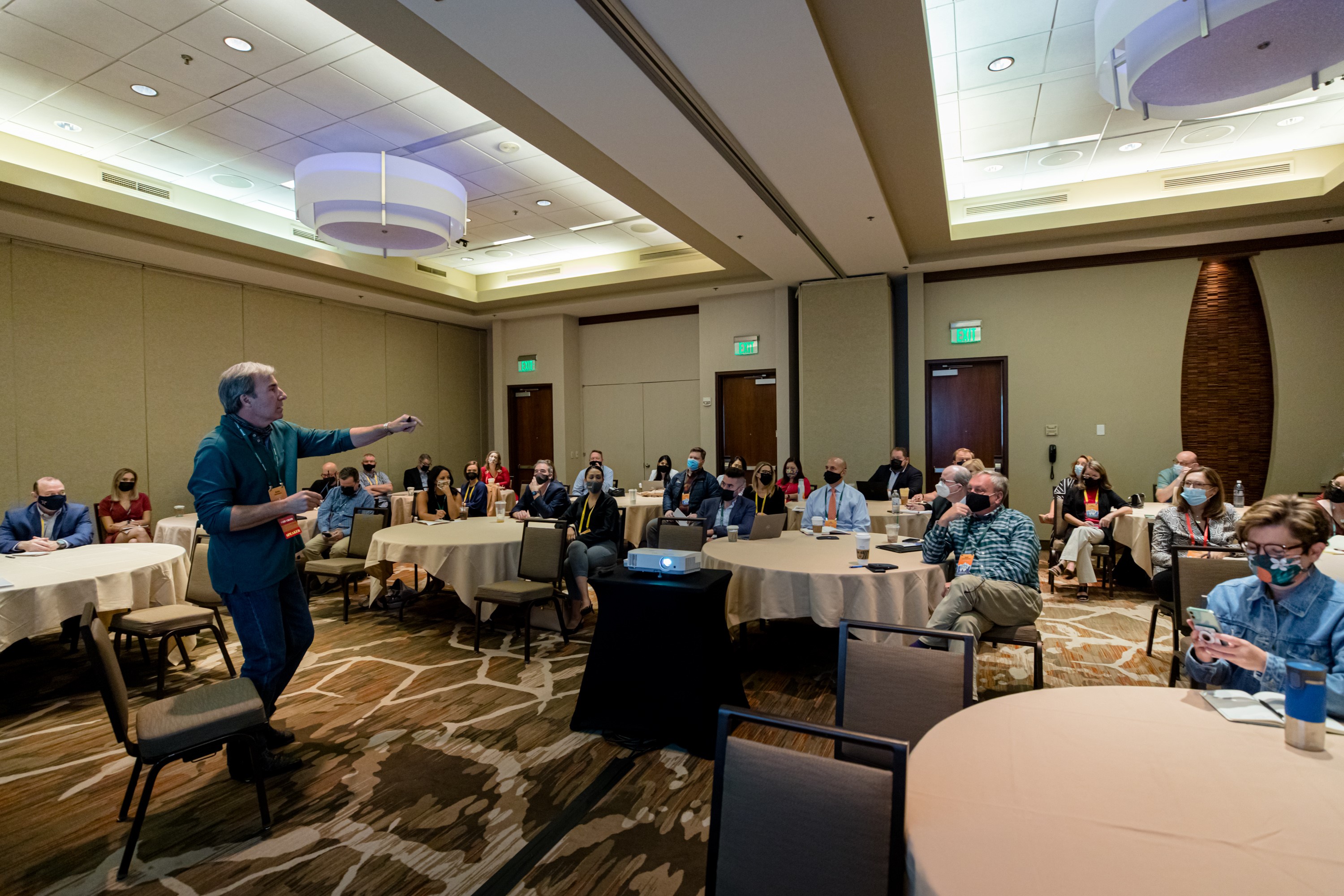Why Good Coaching Matters Now More Than Ever

By Mikaela Schlueter
In his upcoming session at RTDNA22, Kevin Benz, newsroom coach and former news director, will talk with news leaders about how to create a culture of feedback and recognition in the workplace.
“I don't think good coaching inside of the newsroom has ever been more important,” Benz said.
Throughout his three-decade-long career in the news industry, Benz has had hands-on experience in understanding newsroom culture and how it operates. He started as a photographer in Austin, Texas at KTBC-TV and at KPRC-TV in Houston. He was also a news director for News 8 Austin, an organization he launched.
Benz’s session on feedback comes at a fitting time for newsrooms. A poll recently conducted by Gallup Inc. found that employees who received good feedback and recognition were 56% less likely to look for other jobs. Along with this, Gallup also found that good feedback resulted in employees being 70% less likely to burn out.
The current hiring and retention rate in newsrooms is struggling, Benz said, making efforts to retain people vitally important for directors and managers. He hopes that people will leave his session with answers about how to include regular feedback in their daily work, how to make corrective feedback more effective and make the entire task easier to accomplish.
At RTDNA22, we are bringing together great minds in journalism, like Kevin Benz, who will provide insight into building a better team and establishing trust in the communities we serve.
What are you planning to discuss at RTDNA22?
Over the last few years, what we’ve really concentrated on is giving people good tools to make managing people more manageable. One of my goals, in talking to news directors and news managers, is to try and make a very, very hard job just a little bit easier. We'll talk this year about how to give good feedback. … This is a topic that news directors, I think, innately understand they need to be able to do well. Because how do you get people better, if you're not giving them the kind of feedback they need in order to improve?
What do you hope people will get out of your session?
A couple of things. The first is to understand that giving feedback is not necessarily a huge, time consuming, overwhelming project for news directors to take on. Giving good feedback can be simple, easy and fast. Now, that doesn't mean all of it is simple, easy and fast.
There's different kinds of feedback we can give. One is the daily, positive feedback that we want to give our teams in order to let them know they're doing a good job. The other kind of feedback is positive feedback that shows, “Here's who we are, here's how we do great work,” and motivates all of our team to do and continue doing great work. Now, there's a third kind of feedback and that kind of feedback is corrective. It's the kind of feedback where you've got somebody who is maybe not meeting the mark, maybe has created some conflict in your newsroom. This is the kind of feedback that's really hard to do, not just because you need to be really careful about doing it right, but because it also can be really kind of scary.
We're going to talk about all three of those types of feedback and try to make them a little less frightening and a little less heavy.
Why is the training you do, not only at the upcoming RTDNA22 conference, but across the country, important?
I don't think good coaching inside of the newsroom has ever been more important. We're just coming out of two years in which journalists have been kind of locked away and many times, working out of their home. They're just transitioning back into newsrooms over the last several months. Journalists who have been working from home haven't been around each other and the collaborative team is a big source of good feedback for each other. What we want to do is create a culture of feedback inside of our newsrooms. The kind of culture that has our news managers giving good feedback to people but also a newsroom that is really working to keep getting better, that is inspired and motivated to keep getting better. That kind of culture of recognition, culture of feedback, that we can create in our newsroom is really important.
What did you learn from being a journalist and how does it impact you now?
Journalism to me is about creating better communities. We do that by informing. We do that by finding more perspectives. We do that by helping solve problems. But in the end, our highest goal is to create a better place for people to live. And so when I think of journalists and the hard work, and sometimes thankless work, that they do, I think of what they need in order to continue doing this very important, but very difficult, work. Journalists need to be inspired.
We need to help inspire them, support them, give them good feedback and motivate them in order to create better communities. So that's what journalism means to me. And it's why I keep working to try to help newsrooms and help journalists do better work.
Photo: BP Miller / Chorus Photography
